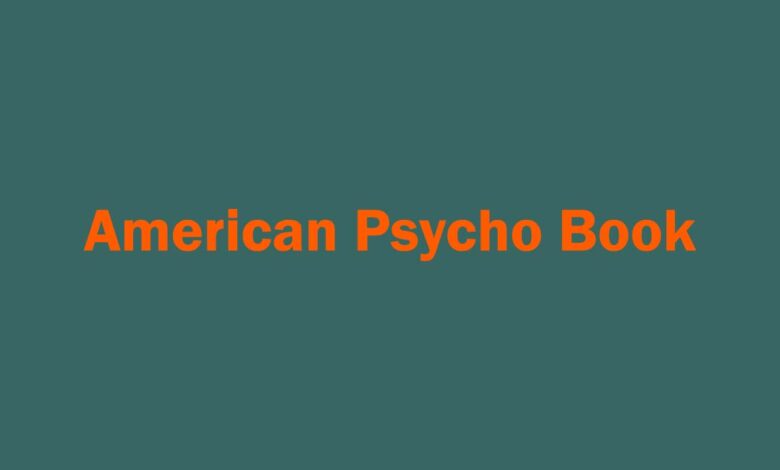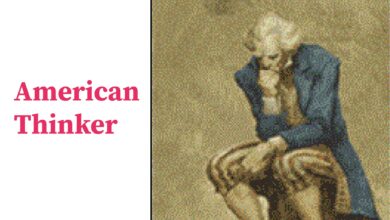Review: American Psycho Book by Bret Easton Ellis

American Psycho Book, written by Bret Easton Ellis and first published in 1991, is an infamous and provocative novel that has stirred both critical acclaim and controversy over the years. At its core, the book presents a brutal satire of 1980s consumerism, particularly targeting the yuppie culture of Wall Street. Through its unrelenting depiction of materialism, violence, and moral decay, American Psycho forces readers to confront unsettling realities about the darkest sides of human nature. Despite the controversy, it remains one of the most significant and challenging works of modern fiction.
Plot Overview
The tale of Patrick Bateman, a wealthy young investment banker at the pinnacle of his career & his terrifically evil double life. During the day, he is a successful executive with an obsessive focus on his looks, among other things. He goes to fancy high-end restaurants and has conversations that are dead boring with someone who is just as vain.
Beneath the surface of her perfect world, however, lives a disturbed sociopath who commits violent fantasies and brutal murders. Bateman’s double life the ideal yuppie in daylight / knife-wielding murder at night permeates the novel, which is concerned with themes of personal identity, consumerism, and a broader sort of dissociation.
Over the course of the novel, Bateman’s violent actions become more and more outlandish and dreamlike, leading to a sense of erasure between what may actually be happening and what is all in his head.
He leaves it up to the readers whether the events of the novel really happened or just a wound product of Bateman´s delusional mind. The novel arches to an open-ended conclusion with the enigmatic line “This is not an exit,” cementing some of that moral emptiness in our minds.
Themes of Consumerism and Alienation
What makes American Psycho great is its continued attack against consumerism. Bateman obsesses over brand names, fancy meals, and the latest styles in clothing as a manifestation of the superficial materialism of the 1980s. As some reviews have pointed out, this part of the book can seem repetitive, almost boring at times, but that boredom works great as a reflection of Bateman’s empty life.
The endless lists of products and brands highlight a world where the self is formed completely through consumption. Bateman and his ilk are almost interchangeable, mired in a culture of consumerism where the only meaning lies in what you can buy, but nothing offers hope.
Alienation is the name of the game when it comes to Bateman. For all his money and privilege, he is fundamentally alone, unable to connect with those in his orbit. He has very little depth in his relationships, and he only knows violence as a reaction to allow him to feel something real when everything else is numb. To critics, what this means is that the violence of Bateman may be less a story of personal psychopathy but rather one that typifies the dehumanizing nature of capitalist society.
Violence and Controversy
American Psycho Book, particularly in the public consciousness, is best known for its reams of graphic material violence against women. The novel shocked readers and was condemned for its explicit content when first published.
The book was even banned in some countries as well. American Psycho Book is violent, unbelievably so its violence can actually feel cartoonish at times, and this has led certain critics to posit interpretations wherein the slaughters that take place may potentially all be in Bateman’s mind. So the violence in American Psycho is really disturbing in part due to how routine it is for Bateman.
The more bizarre, violent Act II scenes have the same deadness of tone that Bateman uses to describe his morning proclivities or business meetings. It offers up the absurd horror we fall into, taking us to face a world so horrific by its banalization, and it is one of Ellis’ best narrative resources; as stated in an article at The Millions: This mixing of the wild with the commonplace is among Ellis’ most successful methods, compelling you to double-take on how violence can become organic in such an act-, power-, prestige-obsessed community.
Satire and Dark Humor
On the contrary, as much has been written about it elsewhere, American Psycho is also a black comedy of the highest order. Ellis plastics Bateman’s ridiculous snobbery and the inane conversations of his peers at us, so we can all laugh in the faces of those Vanity Fair add-ins who live empty lives restrained only by good breeding.
The book has its grim laughs, like Bateman’s obsession with minutiae such as the hue of his business card and the positioning of art in his apartment. The book’s snide caricature of yuppie culture is both razor-sharp and hyperbolic, mining the ridiculousness of a universe wherein your optics remake truth.
Instead, they frequently fail to realize who a particular buddy is or what friend looks like whom, illustrating just how disposable are their facile lives–Bateman and the boys themselves. Bateman actually mistakes another character for a completely different person in one scene, and is then corrected—the point it making being that these characters are so devoid of anything but consumer-based identity detail that they are interchangeable.
The Ambiguous Ending
The elusive nature which has pervaded American Psycho ends in the film’s rarely-discussed conclusion. The reader is left to wonder if any of the murders happened at all by the time we reach the end of the book, as Bateman has lost his last grip on reality. In one of the final moments, Bateman confides in a colleague his real-life penchant for mutilation and murder, only to be met with laughter, taunting him that such cowardly acts can’t be veiled, also making him more or less what we have all suspected – rather than an Übermensch of society.
The conspiracy theory is one of the most widely discussed in relation to the book, with it proving open to a myriad of possibilities calling into question how truth and interpretation can exist in a culture governed by what merely appears.
The Bottom Line
American Psycho Book is definitely a difficult book to get through, but it will also leave you thinking about its contents long after the final page has been read. Bret Easton Ellis shows us the grimmest of human nature and lays bare the void that consumer culture sits atop through Huey Lewis quoting murderer Patrick Bateman.
Combining sickening violence with belly laughs and well-aimed shots at societal ills, the novel is a tough read, but has maintained its appeal for an audience many years after first being published. It’s definitely not for everyone, but American Psycho Book is a modern classic a dark reflection of our culture’s worship of money and success.





